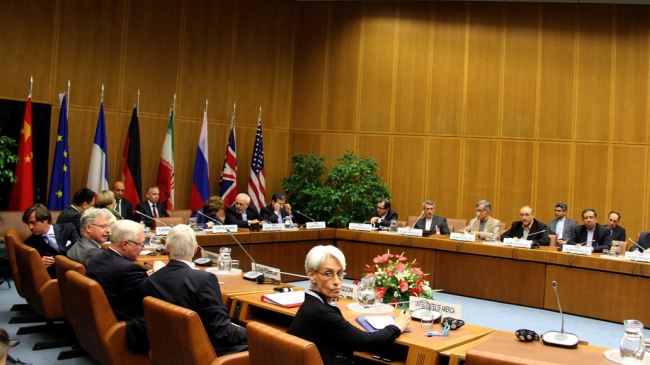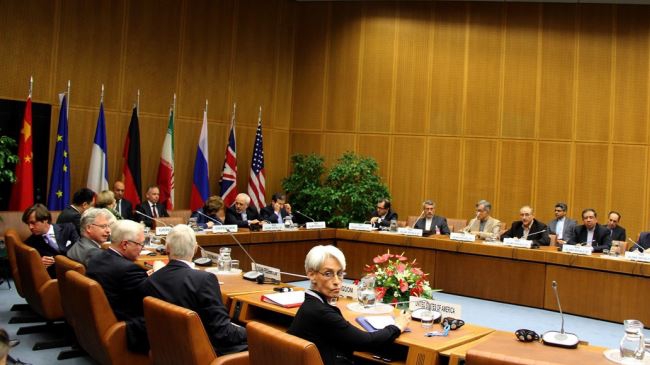 Iranian Foreign Minister Mohammad Javad Zarif says�any deal between Iran and the P5+1 on the Islamic Republic�s nuclear energy program�is much better than no agreement at all.
Iranian Foreign Minister Mohammad Javad Zarif says�any deal between Iran and the P5+1 on the Islamic Republic�s nuclear energy program�is much better than no agreement at all.�I still believe that's (a final deal) a possibility. The only problem is how this could be presented to some domestic constituencies � primarily in the United States, but even in places in Europe � that could please them, or some may say could appease them because some of them are not interested in any deal,� Zarif said in an interview with�National Public Radio (NPR) on Wednesday.
The Iranian foreign minister added that "no amount of assurance" would satisfy those opposed to�any agreement, because, "they're not interested in a deal, period. And they'll try to use excuses to kill a deal."
�But I think if you compare any deal with a no deal, it's clear that a deal is much preferable,� the Iranian foreign minister added.
Speaking at the annual conference of pro-Israeli lobby group AIPAC in Washington D.C. early in March, US Secretary of State John Kerry said the US would not accept a "bad deal" over Iran's nuclear energy program.
�Our diplomacy is guided by a simple bottom line: No deal is better than a bad deal, and we absolutely will not accept a bad deal,� Kerry added.
Elsewhere, the Iranian diplomat said that the illegal sanctions imposed against Iran have been ineffective and Iran has gained a lot from the sanctions.
�If the United States believes that sanctions have been so effective, then it should answer the question�Have they achieved any of the policy goals that they intended to achieve?�
Zarif�further said the goal of the sanctions �was to push Iran into abandoning its nuclear program�.[However,] If at the time of the imposition of sanctions, we had less than a couple of hundred centrifuges, now we have about 20,000. So that's the net outcome.�
Last November, Iran and the five permanent members of the UN Security Council � the United States, Russia, China, France and Britain � plus Germany signed an interim deal in Geneva, which took effect on January 20 and expired six months later. In July, Iran and the six countries agreed to extend negotiations until November 24 this year after they failed to reach common ground on a number of key issues.
By Press TV
The Iran Project is not responsible for the content of quoted articles.











